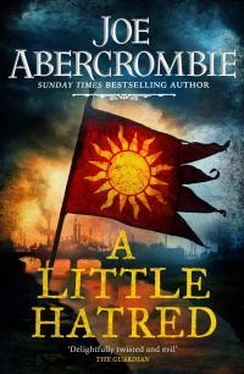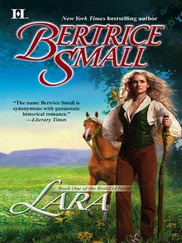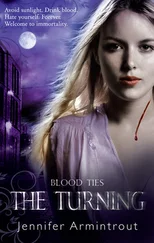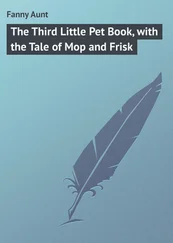She stood hunched, up to her knees in the river, soaked dress rolled and tucked into a belt made from knotted rope, all thought of propriety long gone. All thought of propriety had gone the moment she staggered from this sewer of a river the first time, shivering in her drawers.
Clatter, gurgle, slop and trickle. How long had she been filling buckets now? It felt like hours. As blue evening turned to grey twilight turned to mad darkness lit by the glow of fires. As the distant tang of burning became a tickling reek then an endless scratching of smoke that even with a wet rag across her face made her want to choke with every breath. How long had she been filling buckets now? It felt like days. It felt as if she had always been filling buckets, and always would be.
The women made a chain, passing slopping pails, cans, pots from hand to hand up the shore, children darting back through the rubbish with the empties so Savine could take them and fill them again, clatter, gurgle, slop and trickle.
On the other side of the river, mills were burning, flames towering into the night, the great chimneys black fingers against the brilliance, their reflections wriggling in the slow-flowing water. Burning things drifted from the sky into the streets, onto the beach, into the river, little flaming birds that sputtered and popped, dancing lights floating on the black mirror for a moment before they were gone.
Up among the burning buildings, at the end of the chain of buckets, men struggled with the fires, shouting, bellowing, yelling at one another. Anger, maybe. Desperation, maybe. Encouragement, maybe. Savine was too tired to tell the difference. So tired she could hardly remember how to speak. How to think. She had become a machine herself. A machine for filling buckets. What would her important connections at the Solar Society think if they could see her now? She gave a weary snort that caught in her throat and nearly made her retch. Serve the arrogant bitch right, more than likely.
The clatter of the handle, the gurgle of water as it filled, the slop and trickle as she passed it to May, her legs, her arms, her shoulders trembling with the effort. Was it the cold, or the exhaustion, or the fear that made her shake so? What was the difference?
Her breath snagged and she was caught with a coughing fit, sudden as a punch in the gut. She doubled up, wasted ribcage buzzing with each choking gasp, tore the rag from her face and was sick. All she had to be sick with, anyway, bitter bile and bad water, her own little contribution to the river’s filth.
She wrested back control of her lungs, then stooped to fill the bucket. Clatter, gurgle, slop and trickle—
There was a hand on her shoulder. Liddy. ‘It’s out,’ she said.
Savine stared dumbly at her, then up the bank towards the buildings. Smoke still rolled skywards, but the flames were gone. She waded from the river and flopped on the slimy shingle on her hands and knees, utterly spent. She arched her back, one way then the other, aches stabbing right through into her heels, right up into her neck. The faintest shadow of what her father felt, perhaps, every morning. Maybe it should have given her sympathy for him. But as he was so fond of saying, pain only makes you sorry for yourself.
‘It’s out,’ rasped May, sinking down on the shore beside her.
Savine groaned as she came up to sitting, winced as she tried to work her fingers, cracked and wrinkled by cold water, ripped raw by the rusted handles of the buckets.
‘It’s out over here,’ she whispered, staring across to the great blaze still raging on the far bank.
‘All we can worry about is here. Over there …’ The orange glow of the fires across the river picked up the hollows of Liddy’s face even more starkly than usual. Savine understood. Over there was lost. Over there was gone.
When she arrived in the city, she had smiled to see the building sites everywhere, the cranes and scaffolds, the stuff of creation. But Valbeck was one vast demolition now.
She caught some fragment of her mind trying to calculate the scale of the investments gone up in smoke. The buildings and machinery destroyed, the people ruined. What were her own losses, for that matter? None of it felt very important, compared to the pain in her hands.
There was a breeze, at least, carrying the haze of smoke down the river. Enough that Savine could get a proper breath into her raw chest.
‘What happened?’ she whispered.
‘Reckon the Burners set some fires on their way out of town.’ Liddy wiped her face on the back of her sleeve and only succeeded in smearing ash across it. ‘A little parting gift.’
‘Their way out?’
May ran her tongue around the inside of her mouth and spat. ‘They say the crown prince is coming with five thousand soldiers. Rumour is they’ll be outside the city tomorrow.’
‘Orso is here?’ she whispered. She had hardly thought of him since the uprising. Hunger, cold and the constant threat of death rather blunted one’s appetite for romance. Now his grin came up in her memory, painfully sharp, and she felt weak with a sappy welling of relief.
‘Guess they managed to prise him out of the whorehouse,’ said Liddy. ‘No doubt he’ll be bringing the Inquisition with him.’
‘Oh,’ said Savine, stupidly. For most people here, a horrifying prospect. For her, the best news in weeks.
‘Seems the party’s over,’ murmured May.
There was a rumble and Savine jerked up. On the other side of the river, the roof of a burning mill was falling in, fountains of sparks towering into the night, smoke boiling as half of one wall toppled inwards. The brave new age collapsing on itself.
Crown Prince Orso was riding to her rescue. Perhaps she should have laughed at that. Perhaps she should have wept at it. But she had no laughter and no tears left. She was a husk.
She sat on the bank and watched the flames dance in the water.
Eating Peas with a Sword
‘Should we attack, Your Highness?’
‘Attack, Colonel Forest?’ Orso did not blame the man. Violence is very much the job of a career soldier, after all. But the limits of his imagination were becoming clear. ‘Attack who? The city itself is an asset, not an enemy. As for the inhabitants, we really have no idea who is loyal and who disloyal. Who a rebel and who a hostage. Making war on our own citizens … it would look dreadful. We would create more rebels than we killed.’
Orso peered through his eyeglass towards Valbeck again. He could see tiny buildings, towers, pinprick chimneys, dark columns rising from the stricken city that he feared was the smoke of destruction rather than of industry.
How he would have loved to order a glorious charge. To put rebels to the sword, to root through every house until he found Savine. To whisk her off her feet and kiss her fiercely and so on, much to her great delight. To be, for once, the one to rush to her rescue. But Orso knew he had to put the children’s stories to one side and think.
She was tough. A great deal tougher than he was. She was resourceful. A great deal more resourceful than he was. Her best chance – everyone’s best chance – was for him to move slowly, cautiously and very, very boringly. He blew a sigh from puffed cheeks, itchy with the beginnings of a beard he hoped might look military but suspected would prove to be another of his many mistakes.
‘Attacking the city with an army would be like eating peas with a sword,’ he said. ‘Messy, frustrating and you’ve a good chance of stabbing yourself in the face. We need to be measured. Calm. The firm but necessary hand of authority. We need to be the grown-ups.’ For once in his life.
Orso snapped his eyeglass decisively closed. Vital to look decisive, especially when you haven’t a bloody clue what you’re doing. He had been making it up as he went along all his life, of course, but never before had the fates of many thousands of other people depended so directly on his total ignorance. Perhaps that’s what makes a hero, though. The towering self-confidence to dance at the brink of disaster and never consider the drop.
Читать дальше












